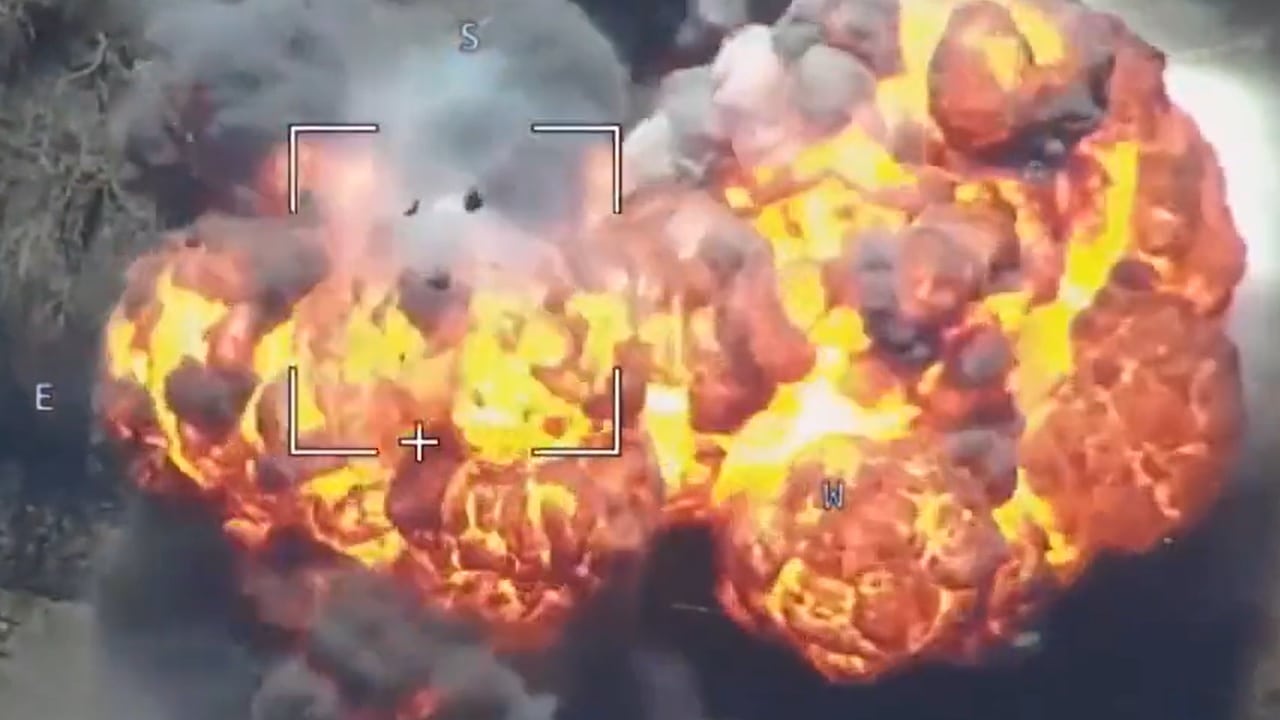Russia’s offensive to “reclaim” Ukraine is ostensibly still in full swing, but Ukrainian armed forces have seemingly found an edge they have over Russia’s military might – drone attacks.
Drone War
Ukrainian forces have been utilizing drone strikes more and more as the war rages on, but the attacks are not limited to the front lines – many strikes have gone way past the border between the two countries, some going as far as Moscow itself.
A recent strike by Ukraine saw the crippling of at least four large Ilyushin-76 transport planes, two of which reportedly burst into flames.
The big planes are an integral part of Russian forces’ means of resupplying its troops and sending more soldiers to the field.
The destruction of four of them could he a significantly detriment to the Russian offensive.
“Yes, four IL-76 transport planes were destroyed in Pskov at an airfield, they are beyond repair. Also, several other of those (aircraft) are damaged, but the information is being checked,” Ukraine’s GUR spokesperson Andriy Yusov told the press. The GUR is Ukraine’s military intelligence arm.
The offensive was part of a larger-scale attack – one of Ukraine’s most significant drone strikes since the war – that targeted the Pskov, Bryansk, Kaluga, Orlov, Ryazan and Moscow regions.
According to reports, the attacks also hit a fuel depot and a microelectronics factory.
Russian authorities also confirmed the attack.
Counties allied with Ukraine have expressly forbidden the country from using weapons from them to attack targets in Russian soil, but Ukraine reserves the right to strike at locations past its border with Russia as long as it uses its own weapons.
“Starve, stretch, and strike”
UK’s Chief of the Defense Staff, Admiral Sir Tony Radakin, describe Ukraine’s strategy as “starve, stretch, and strike”, where Ukrainian military targets key infrastructures as opposed to committing all its forces to fight on the front lines.
This way, Ukraine hopes to hobble the Russian military’s capability and capacity to resupply, which will help Ukrainian forces punch through Russia’s front lines and eventually drive the invaders back.
The drone strikes seem to be working and are seemingly a major contributor to Russian troops’ reported sink of morale.
A recent intelligence report from the U.K.’s Ministry of Defense indicates that Russia has been experiencing a spate of soldiers refusing to go back to fighting, resulting in their incarceration.
The report says that roughly 100 soldiers a week are sent to jail for refusing to obey orders and return to the front lines, and estimates that in a year’s time, more than 5,000 soldiers will be imprisoned for refusing to fight.
Russia has reportedly been using sheer numbers in the hope of overwhelming Ukrainian forces, even throwing poorly trained soldiers into battle.
This, along with problems with resupply and high attrition rates – partly attributable to the drone strikes – have exacerbated disillusionment among troops about the war effort.
The disillusionment has also spread to even several proponents of the war, who have criticized the government for failing to properly respond to the attacks, especially those that occur inside Russia.
Tim Ramos has written for various publications, corporations, and organizations – covering everything from finance, politics, travel, entertainment, and sports – in Asia and the U.S. for more than 10 years.
From the Vault
The Navy Sent 4 Battleships To Attack North Korea
‘Sir, We Hit a Russian Submarine’: A U.S. Navy Sub Collided with a Nuclear Attack Sub

